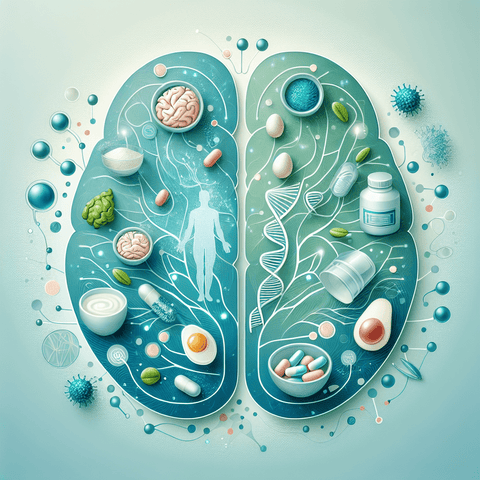Introduction
Vitamin D is an essential fat-soluble nutrient that plays a critical role in a vast array of bodily functions. Most commonly recognized for its role in supporting bone health, vitamin D contributes to calcium regulation, muscle strength, immune defense, and even mood regulation. As emerging research continually links vitamin D deficiency to numerous health concerns, the importance of maintaining optimal levels has never been clearer.
Given the growing awareness around its health benefits, the demand for vitamin D supplementation has seen a significant rise. With numerous products flooding the market, consumers face a common question: what is the best vitamin D purchase? Choosing the right supplement is not just about brand appeal—it’s a strategic health decision. The quality, form, dosage, bioavailability, and added nutrients all determine the efficacy of a supplement.
This guide aims to help you make an informed and scientifically-sound decision by exploring essential aspects of vitamin D, identifying the various forms and types available, and highlighting trusted supplement categories such as those provided on Topvitamine.com. Whether you're dealing with a deficiency or simply striving to enhance your daily nutrition, this comprehensive post is tailored to meet your needs.
1. Understanding Vitamin D in Nutritional Supplements
Vitamin D is crucial for regulating calcium and phosphorus absorption in the body, primarily influencing bone health. However, its functions extend far beyond that—scientific studies have linked vitamin D to immune response modulation, cardiovascular support, and even mental well-being. Unfortunately, it's difficult to get enough vitamin D through diet and sun exposure alone, which is why nutritional supplements have become increasingly important for many individuals.
Vitamin D exists in two major forms used in supplements: D2 (ergocalciferol) and D3 (cholecalciferol). D2 is typically derived from plant sources like yeast or mushrooms treated with UV light. D3, on the other hand, is usually derived from lanolin (a substance found in sheep’s wool) or lichen in vegan-friendly products. Numerous peer-reviewed studies have shown that vitamin D3 is significantly more effective at raising and maintaining adequate levels of circulating 25-hydroxyvitamin D (25(OH)D), the main indicator of vitamin D status.
Supplementation becomes especially necessary for specific population groups: those living in northern latitudes with limited sun exposure, people with darker skin (which naturally blocks UV), the elderly (who synthesize less vitamin D), and vegans (who consume limited dietary sources).
So how do you recognize a high-quality vitamin D supplement? Start by checking for labels that indicate third-party testing, such as those certified by the U.S. Pharmacopeia (USP) or NSF. Reliable supplements will also disclose the source of the vitamin D (e.g., algae-based D3 for vegans), the exact dosage per serving, and additional ingredients used, especially if they enhance absorption, like oils or cofactors.
When browsing products on trusted platforms like Topvitamine.com, you can filter supplements by form, dosage, and specialty interests, ensuring the product aligns with your lifestyle and requirements. The clarity of the product listings on this site helps ensure you receive the supplementation you truly need for optimal health.
2. Vitamin D Supplements: Types, Forms, and Considerations for Purchase
Vitamin D supplements are available in a variety of forms, each designed to accommodate different preferences, absorption capabilities, and life stages. The most common forms include capsules, softgels, tablets, liquids, chewables, sublingual sprays, and powders. Each offers a unique advantage in terms of application, absorption rate, and user convenience.
Capsules and Softgels: These are the most traditional and commonly available forms. Softgels generally contain oil-based solutions of vitamin D, improving absorption due to the vitamin’s fat-soluble nature. These tend to be preferred by adults seeking ease of swallowing and consistent dosing.
Liquids and Drops: Particularly beneficial for infants, toddlers, and the elderly who may have difficulty swallowing pills. Liquid forms often allow for more accurate dosage customization. They are also advantageous for individuals with gastrointestinal conditions that affect absorption.
Chewables and Gummies: Ideal for children or adults who prefer a flavored, palatable option. However, these tend to contain added sugars, artificial flavorings, or lower doses, so efficacy and ingredient transparency are vital when selecting chewables.
Sublingual Tablets or Sprays: These allow the vitamin to absorb directly through the mucous membranes under the tongue, bypassing gastrointestinal processing. This can provide faster and potentially more complete absorption, particularly useful for those with digestive disorders.
When selecting the best vitamin D supplement, consider the following criteria:
- Dosage: Look for an appropriate daily value, typically between 600 IU (15 mcg) to 2000 IU (50 mcg), unless otherwise advised by a healthcare practitioner. Dosage may vary based on individual deficiency levels.
- Purity: Choose supplements free of synthetic fillers, allergens, and non-essential additives. Certifications from third-party laboratories help ensure the purity and potency of the supplement.
- Bioavailability: Products combined with healthy fats or packaged in oil-based forms typically offer superior bioavailability.
For specific population groups, vitamin D needs can vary:
- The elderly: May require higher dosages due to reduced cutaneous synthesis capacity. Also, look for added bone-supporting nutrients such as vitamin K2.
- Pregnant and breastfeeding women: Should prioritize purity and proper dosing, ideally under medical supervision.
- Vegans: Must select D3 sourced from lichen or verified plant sources, clearly labeled as vegan-friendly (avoid animal-derived lanolin-based D3).
Look for premium supplements through respected platforms such as Topvitamine.com, where advanced filtering options can help you sort by allergens, dietary needs, certifications, and supplement form. These considerations help ensure you make an educated, health-focused purchase.
3. Vitamin D Deficiencies: Causes, Risks, and How Supplements Can Help
Vitamin D deficiency is surprisingly common across the globe, affecting children and adults alike. Several key factors contribute to this widespread health issue. Among the most prevalent are inadequate sun exposure, higher melanin levels which inhibit UVB rays, obesity (which sequesters vitamin D in fat cells), chronic kidney or liver diseases, and certain medications that interfere with vitamin D metabolism.
The risk of deficiency is especially high in individuals living at high latitudes with longer winters, those who predominantly stay indoors, and people who regularly wear sunscreen or cover their skin due to cultural or health reasons. Dietary insufficiency also plays a role, particularly in vegan and vegetarian populations that may lack access to key dietary sources like fatty fish, egg yolks, and fortified dairy products.
The symptoms of vitamin D deficiency are often subtle but can become severe over time. These include bone pain, muscle weakness, frequent infections, fatigue, depression, and delayed wound healing. In children, deficiency may lead to rickets, whereas in adults it can contribute to osteoporosis or osteomalacia, increasing the risk of fractures.
Assessing individual vitamin D status is best conducted via a 25-hydroxyvitamin D blood test. This critical step ensures appropriate dosing and prevents both under- and over-supplementation. Individuals with very low levels (<20 ng/mL) typically require higher loading doses under medical supervision, followed by maintenance doses.
Targeted supplementation remains the most effective method to address deficiencies. Studies demonstrate that vitamin D3 supplementation is more efficient at restoring serum levels compared to D2. Furthermore, pairing vitamin D with other key nutrients—such as magnesium, which assists in its activation—can optimize recovery and prevent chronic issues.
It’s imperative to routinely monitor serum levels, especially when consuming high-dose supplements over extended periods. Chronic intakes exceeding the upper limit of 4,000 IU (100 mcg) daily without supervision can pose risks of toxicity. Ultimately, correcting a deficiency through supplementation is highly effective when done responsibly, with regular assessments and adjustments based on lab findings and individualized health goals.
4. Best Vitamin D Sources: Natural and Fortified Options
Although sunlight is considered the best natural source of vitamin D, living conditions or lifestyle habits often prevent consistent exposure. Ultraviolet B (UVB) radiation triggers vitamin D synthesis in the skin, but seasonal changes, cloud cover, pollution, and sunscreen usage can significantly reduce this process, making supplementation imperative for many people.
Natural food sources of vitamin D are few but include:
- Fatty fish like salmon, tuna, mackerel, and sardines
- Egg yolks
- Beef liver
- Mushrooms exposed to UV light
- Cod liver oil
While nutrient-dense, these sources may not be sufficient to meet daily requirements alone. For example, three ounces of salmon provide approximately 450 IU, leaving a gap for individuals whose needs fall closer to 1,000–2,000 IU daily.
Fortified foods present a valuable dietary alternative, particularly in Western countries. These include fortified milk, plant-based milk alternatives, breakfast cereals, orange juice, and certain brands of yogurt. However, labels often state “fortified with vitamin D,” making it essential to differentiate between D2 and D3 versions. D3-fortified products generally offer superior efficacy.
When navigating natural vs. supplemental intake, convenience and consistency come into focus. It’s impractical for most consumers to ingest enough dietary vitamin D daily without supplementation. That’s where products such as those featured on Topvitamine.com come in. Their curated collection ensures you can meet your needs safely and efficiently, without over-reliance on infrequent foods.
Still, it's wise to incorporate dietary sources wherever possible. Not only do they contribute valuable cofactors and complementary nutrients, but spreading intake from multiple avenues aids in nutrient synergy—resulting in enhanced absorption and effectiveness altogether. However, for those with dietary restrictions, allergies, or limited access to fortified foods, vitamin D supplements remain the most practical option.
5. Vitamin D Absorption: Maximizing Effectiveness of Your Supplement
To achieve the full benefits of any supplement, optimal absorption is paramount. Vitamin D is a fat-soluble vitamin, meaning it requires dietary fats to be absorbed efficiently in the gut. Taking your vitamin D supplement with a meal that contains fat—such as olive oil, avocados, nuts, or dairy products—significantly improves bioavailability.
The body’s ability to absorb and activate vitamin D can also be affected by individual health status. Diseases affecting fat digestion (e.g., celiac disease, Crohn’s disease, and pancreatic insufficiency) can hinder absorption, necessitating higher doses or changes in delivery formats like sublingual sprays. Similarly, medications such as steroids or weight-loss drugs may reduce absorption or increase excretion of vitamin D.
Supplement formulation plays a major role in absorption efficiency. Oil-based softgels or capsules featuring MCT oil, olive oil, or another high-quality fat carrier enhance delivery. Additionally, some evidence suggests liposomal formulations may further increase bioavailability, though more longitudinal studies are needed for confirmation.
Timing is another important factor. Taking vitamin D after your largest meal of the day may amplify absorption as fat digestion peaks. Also, spacing vitamin D apart from competing minerals like calcium, iron, and zinc may improve utilization, especially if you are supplementing with magnesium concurrently.
In essence, optimizing bioavailability means understanding the interplay between diet, delivery format, and your unique physiology. Choosing tested, high-quality vitamin D products that disclose oil carriers and bio-enhancing ingredients—like those found on Topvitamine.com—will provide you with the highest chance of supplementation success.
6. Vitamin D Safety: Ensuring Safe Supplementation and Avoiding Toxicity
While vitamin D is essential, overstating its benefits or overconsuming it can lead to adverse consequences. Fortunately, vitamin D has an impressive safety profile when taken in appropriate doses. Most adults maintain excellent health with daily doses ranging from 600 to 2,000 IU. However, excessive and prolonged intake of vitamin D supplements can pose risks, making caution and proper monitoring essential.
Hypervitaminosis D, or vitamin D toxicity, is rare but serious. It generally arises from high-dose supplementation without medical supervision and can result in hypercalcemia, a condition characterized by elevated calcium in the blood. Symptoms include nausea, vomiting, confusion, muscle weakness, kidney stones, and in severe cases, renal failure.
To avoid toxicity:
- Do not exceed recommended daily allowances unless advised by a healthcare provider
- Monitor 25(OH)D levels periodically, especially if consuming 4,000 IU or more daily
- Use supplements with clearly labeled dosages and reputable third-party testing
Personalized dosing is critical. Individuals with obesity, malabsorption syndromes, or darker skin types may safely require higher intakes. Conversely, those taking calcium supplements or with conditions like sarcoidosis should take particular caution due to elevated risk for calcium-related complications. Collaborative consultation with healthcare providers can help customize your protocol safely and effectively.
Lastly, safety depends not just on the amount of vitamin D you take but also how it's paired with other nutrients. Co-nutrients like vitamin K2 help regulate calcium placement, reducing the risk of soft tissue calcification. Products offering synergy, transparency, and dosage flexibility—like those on Topvitamine.com—are invaluable tools in safe supplementation.
Conclusion
Finding the best vitamin D purchase requires a blend of scientific understanding, personal health awareness, and product scrutiny. By learning the fundamentals of vitamin D functionality, recognizing deficiency signs, choosing the right supplement format, and prioritizing products with proven purity and bioavailability, you take an active role in your well-being.
Everyone's needs are different. That’s why it's essential to work with your healthcare provider to determine your ideal dosage, testing schedule, and product type. Whether you prefer softgels with oil carriers, vegan-friendly drops, or chewable formulas for your family, selecting the right product ensures you get the most from your supplement investment.
Stay informed, stay consistent, and invest wisely. Explore our curated collection of top-rated vitamin D supplements at Topvitamine.com.
Q&A Section
Q: What form of vitamin D is best—D2 or D3?
A: Vitamin D3 is generally preferred as it's more effective at raising and maintaining blood levels of vitamin D. D2 is still effective, but not to the same extent, especially in long-term correction of deficiencies.
Q: Can I get enough vitamin D from the sun?
A: Possibly, but it depends on factors like your location, season, skin color, and sunscreen usage. Many people have insufficient sun exposure and still require supplementation.
Q: What’s the safest vitamin D dosage?
A: For most adults, 600–2000 IU daily is considered safe. Always check your vitamin D status through blood tests before taking higher doses beyond 4,000 IU.
Q: Are vegan vitamin D3 supplements available?
A: Yes. Some vitamin D3 supplements are derived from lichen, making them vegan-friendly. These are clearly labeled and available at reputable stores like Topvitamine.com.
Q: Should I take vitamin D with food?
A: Yes. Because vitamin D is fat-soluble, taking it with a meal that includes dietary fats helps ensure better absorption.
Important Keywords
- best vitamin D supplements
- vitamin D3 vs D2
- vitamin D deficiency correction
- vegan vitamin D products
- vitamin D supplementation
- safe vitamin D dosage
- high-quality vitamin D
- bioavailable vitamin D
- vitamin D third-party tested
- Topvitamine.com vitamin D



